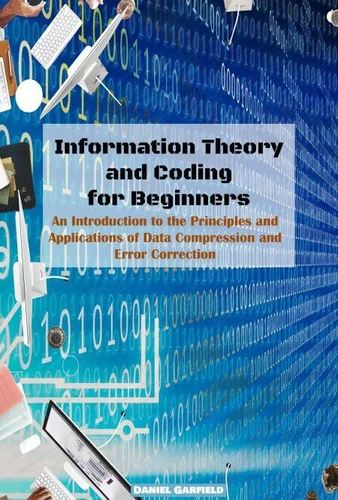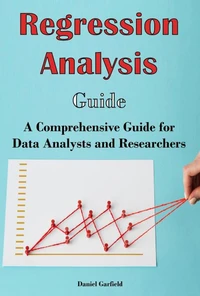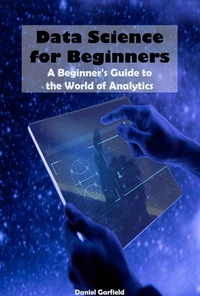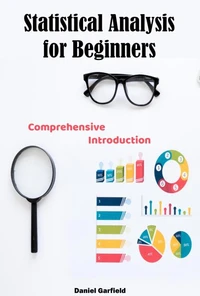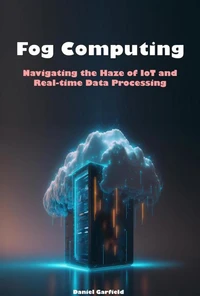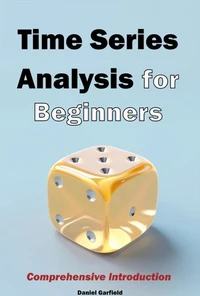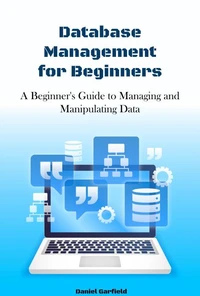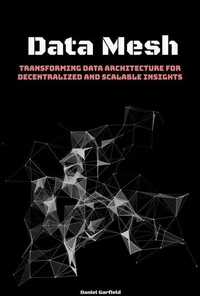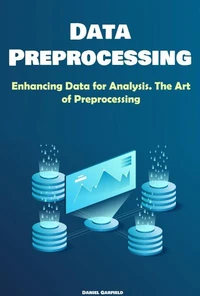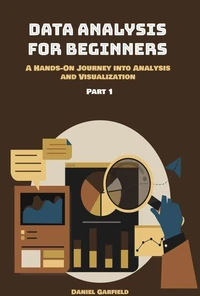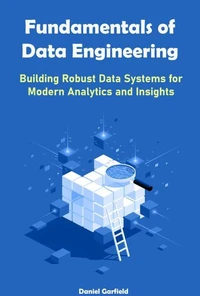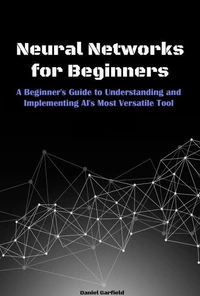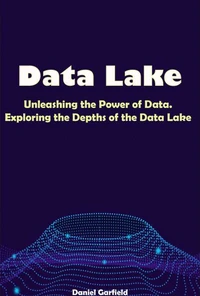Information Theory and Coding for Beginners
Par :Formats :
Disponible dans votre compte client Decitre ou Furet du Nord dès validation de votre commande. Le format ePub est :
- Compatible avec une lecture sur My Vivlio (smartphone, tablette, ordinateur)
- Compatible avec une lecture sur liseuses Vivlio
- Pour les liseuses autres que Vivlio, vous devez utiliser le logiciel Adobe Digital Edition. Non compatible avec la lecture sur les liseuses Kindle, Remarkable et Sony
 , qui est-ce ?
, qui est-ce ?Notre partenaire de plateforme de lecture numérique où vous retrouverez l'ensemble de vos ebooks gratuitement
Pour en savoir plus sur nos ebooks, consultez notre aide en ligne ici
- FormatePub
- ISBN8224842124
- EAN9798224842124
- Date de parution15/05/2024
- Protection num.pas de protection
- Infos supplémentairesepub
- ÉditeurVirtued Press
Résumé
"Information Theory and Coding for Beginners: An Introduction to the Principles and Applications of Data Compression and Error Correction" is a comprehensive guide to the field of Information Theory and Coding. Written for readers with little to no background in this area, this book offers a clear and engaging introduction to the principles and applications of data compression and error correction. The book covers the fundamentals of Information Theory, including basic concepts and terminology, Shannon's Information Theory, and compression and transmission rates.
It then explores source coding techniques, such as Huffman Coding, Arithmetic Coding, and Lempel-Ziv-Welch Coding, as well as lossy compression methods like Transform Coding and Predictive Coding. The book also covers channel coding techniques, including error detection and correction methods like Parity Checking, Checksums, and Cyclic Redundancy Check (CRC), and error-correcting codes like Block Codes, Convolutional Codes, Turbo Codes, and LDPC Codes. Through a series of real-world applications, the book illustrates the importance of Information Theory and Coding in data compression and error correction for various fields, including wireless communication, optical communication, and storage systems.
It also examines emerging trends and technologies in the field, such as Quantum Information Theory, Network Coding, and Machine Learning in Coding. Whether you are a student or a professional seeking an introduction to the field, "Information Theory and Coding for Beginners" provides a comprehensive and accessible guide to the principles and applications of data compression and error correction. With clear explanations, real-world examples, and practical applications, this book is an essential resource for anyone interested in understanding the fundamental principles of Information Theory and Coding.
It then explores source coding techniques, such as Huffman Coding, Arithmetic Coding, and Lempel-Ziv-Welch Coding, as well as lossy compression methods like Transform Coding and Predictive Coding. The book also covers channel coding techniques, including error detection and correction methods like Parity Checking, Checksums, and Cyclic Redundancy Check (CRC), and error-correcting codes like Block Codes, Convolutional Codes, Turbo Codes, and LDPC Codes. Through a series of real-world applications, the book illustrates the importance of Information Theory and Coding in data compression and error correction for various fields, including wireless communication, optical communication, and storage systems.
It also examines emerging trends and technologies in the field, such as Quantum Information Theory, Network Coding, and Machine Learning in Coding. Whether you are a student or a professional seeking an introduction to the field, "Information Theory and Coding for Beginners" provides a comprehensive and accessible guide to the principles and applications of data compression and error correction. With clear explanations, real-world examples, and practical applications, this book is an essential resource for anyone interested in understanding the fundamental principles of Information Theory and Coding.
"Information Theory and Coding for Beginners: An Introduction to the Principles and Applications of Data Compression and Error Correction" is a comprehensive guide to the field of Information Theory and Coding. Written for readers with little to no background in this area, this book offers a clear and engaging introduction to the principles and applications of data compression and error correction. The book covers the fundamentals of Information Theory, including basic concepts and terminology, Shannon's Information Theory, and compression and transmission rates.
It then explores source coding techniques, such as Huffman Coding, Arithmetic Coding, and Lempel-Ziv-Welch Coding, as well as lossy compression methods like Transform Coding and Predictive Coding. The book also covers channel coding techniques, including error detection and correction methods like Parity Checking, Checksums, and Cyclic Redundancy Check (CRC), and error-correcting codes like Block Codes, Convolutional Codes, Turbo Codes, and LDPC Codes. Through a series of real-world applications, the book illustrates the importance of Information Theory and Coding in data compression and error correction for various fields, including wireless communication, optical communication, and storage systems.
It also examines emerging trends and technologies in the field, such as Quantum Information Theory, Network Coding, and Machine Learning in Coding. Whether you are a student or a professional seeking an introduction to the field, "Information Theory and Coding for Beginners" provides a comprehensive and accessible guide to the principles and applications of data compression and error correction. With clear explanations, real-world examples, and practical applications, this book is an essential resource for anyone interested in understanding the fundamental principles of Information Theory and Coding.
It then explores source coding techniques, such as Huffman Coding, Arithmetic Coding, and Lempel-Ziv-Welch Coding, as well as lossy compression methods like Transform Coding and Predictive Coding. The book also covers channel coding techniques, including error detection and correction methods like Parity Checking, Checksums, and Cyclic Redundancy Check (CRC), and error-correcting codes like Block Codes, Convolutional Codes, Turbo Codes, and LDPC Codes. Through a series of real-world applications, the book illustrates the importance of Information Theory and Coding in data compression and error correction for various fields, including wireless communication, optical communication, and storage systems.
It also examines emerging trends and technologies in the field, such as Quantum Information Theory, Network Coding, and Machine Learning in Coding. Whether you are a student or a professional seeking an introduction to the field, "Information Theory and Coding for Beginners" provides a comprehensive and accessible guide to the principles and applications of data compression and error correction. With clear explanations, real-world examples, and practical applications, this book is an essential resource for anyone interested in understanding the fundamental principles of Information Theory and Coding.

